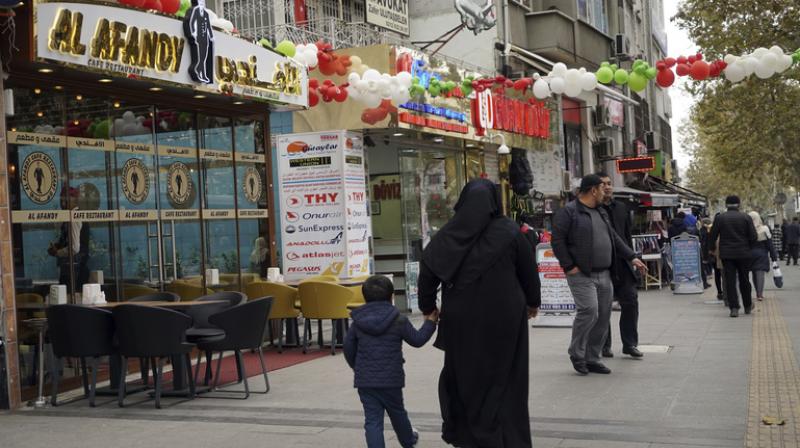Arabic signs face removal threat in Istanbul's Little Syria

Istanbul: With its colorful signs, flashing lights and awnings displaying sales messages in Arabic, Istanbul's Aksaray neighborhood looks just like its nickname, "Little Syria."
Those scenes soon could change as part of a crackdown on what one local official calls "visual pollution."
Last week, Aksaray businesses and residents received a notice ordering them to declutter building facades and overhaul their signage. The order represents the latest salvo in an eight-year effort to standardize storefronts and require all signs to be in the Turkish language, which uses the Latin alphabet. It also seeks the removal of signs in Cyrillic lettering and all signs with neon and LED lights.
Some Syrian residents are vowing to ignore the order, seeing it as an assault on their culture. Turkey today is home to 3 million refugees, mostly Syrian.
"I will defend my rights because I don't agree with this decision," said Mehmet Basil Souccar, who manages five Syrian restaurants in Istanbul.
The 45-year-old, a dual Turkish-Syrian national, estimates that more than two-thirds of Aksaray's stores are owned and operated by Syrians - and predicts street clashes if authorities try to remove Arabic signage.
"You can be sure that if they enforce this order, there will be a very ugly picture in Aksaray," he said.
Some argue that their businesses must be identified with Arabic signs to be identified by their largely Syrian clientele, many of them refugees from the besieged city of Aleppo.
"Our restaurant's name was well known in Aleppo," said Mahrusi restaurant manager Samer Abou Dan. "If we remove our sign, we might as well shut the restaurant down and leave."
Local officials bill the crackdown on non-Turkish signage as part of an initiative to beautify Istanbul's central district of Fatih, which includes Aksaray. They deny pursuing an anti-Syrian or anti-Arabic agenda.
"This is not a project that we planned today," Fatih spokeswoman Nurcan Albayrak said in an email to The Associated Press. She said Fatih was part of a historic peninsula that required "aesthetic consistency" and described the spread of ornately lit and non-Turkish signs as part of a wider problem of "visual pollution."
Many Turkish businessmen in Aksaray, including kebab shop owner Mehmet Gunduz, back the effort.
"I want everybody to put up their signs in Turkish," he said. "We won't have any Turkishness left if all the signs are in Arabic. How will we know we're Turkish?"

